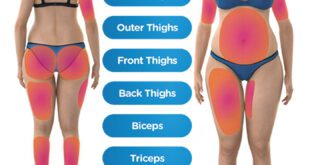Regular comprehensive eye exams are an easy and effective way to promote clear, crisp vision and prevent vision loss throughout your lifetime. Many eye problems produce no symptoms in the beginning, as they stealthily damage vision. In some cases, this damage is irreversible, so discovering problems before they impact vision is of utmost importance.
By scheduling regular eye exams, your eye doctor can pinpoint irregularities before they produce symptoms and progress to the point of creating serious – even permanent – vision loss.
HOW OFTEN SHOULD YOU GET A REGULAR EYE EXAM?
The frequency of comprehensive eye exams depends on elements such as age, overall health, and certain risk factors. In general, regular eye exams should be scheduled as follows:
1. Children 0-19 years old – If you’re in charge of a child or grandchild, it’s important to make sure they get regular eye exams as recommended by their pediatrician.
2. Adults 20-59 years old:
. Adults with clear vision and no risk factors should have a comprehensive eye exam every two years.
. Adults with risk factors for eye diseases like diabetes, high blood pressure, a family history of eye conditions, or previous eye surgery, may need more frequent exams. Your eye doctor will advise you on the appropriate frequency based on your risk factors.
3. Adults 60 years and older:
. Seniors are at increased risk of developing age-related eye conditions such as cataracts, glaucoma, and macular degeneration. Having an annual comprehensive eye exam promotes the early discovery and treatment of these diseases.
The good news is that, when discovered early, nearly all eye diseases can be successfully treated or managed, and vision loss halted and even reversed. That’s why routine eye exams are so crucial to a lifetime of bright, healthy vision.
What to Expect During a Comprehensive Eye Exam
If it has been a while since your last comprehensive eye exam, the time to schedule one is now. Even if your vision seems fine, vision loss can be so subtle it goes unnoticed until permanent damage is done. A vision-protecting comprehensive eye exam is painless, easy, and fairly quick.
The tests and evaluations applied to your case may vary somewhat, but in general will include:
1. Your Medical History – Your eye doctor will ask about your vision and discuss any problems or concerns you may be having. You’ll go over elements like your current medications and supplements, previous eye conditions, family health history, and lifestyle factors that may impact your vision and raise your potential to have eye problems.
2. Visual Acuity Test – This is the familiar eye chart where you’re asked to read letters from a distance to measure your visual acuity. This test determines how well you can see at various distances.
3. Refraction Test – This test involves looking through a tool called a phoropter to assess your prescription for corrective lenses. It’s where you’re asked, “Which is clearer, one or two?” This test determines the lens power needed to correct refractive errors like nearsightedness, farsightedness or astigmatism.
4. Visual Field Test – This test is used to evaluate your peripheral vision. Your doctor will move a light or object to various locations in your visual field to determine if you have limitations or blind spots.
5. Eye Muscle Movement Test – By having you follow a moving object with your eyes, your doctor will examine your eye alignment and coordination.
6. Eye Pressure Measurement – This test, known as ocular tonometry, measures the pressure inside your eyes. It’s important for detecting glaucoma, a condition characterized by increased intraocular pressure that, left untreated, can damage the optic nerve. Tonometry is also used to assess the success of glaucoma treatment protocols.
352-632-2020
 Central Florida Health and Wellness Magazine Health and Wellness Articles of the Villages
Central Florida Health and Wellness Magazine Health and Wellness Articles of the Villages



